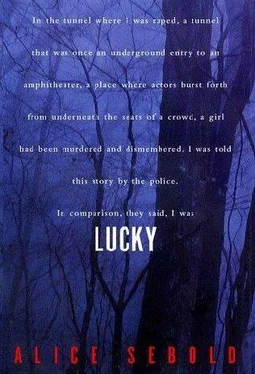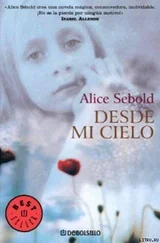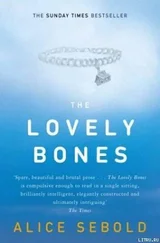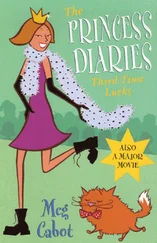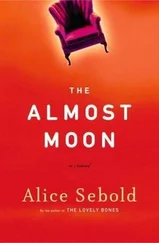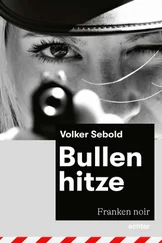I found myself in odd places. Vacant lots, alleyways, and Athens. One night I came to from a nod in a tiny cafe in Greece. In front of me, on a dish, were small silvery fish. Two men were sopping up the oil from my plate with bread. We went back to a house on a hill. I heard the name of my Greek student mentioned but he wasn't there. We smoked black tar and walked outside again. One of the men disappeared, the other wanted to sleep with me. I had been on American TV
At the same house, with a new population shooting up in the back, I put on someone's jacket because I was cold. There was a used needle in the pocket. It stabbed me. I was startled for a moment, immediately I thought, AIDS, then I did what I had become good at: played the odds. It was Greece. How bad could the risk be?
After thirty days I went home. I wrote a travel article for The New York Times, which appeared the following spring in time for people to plan their vacations. In the meantime, I flew back to Europe with another former student, John. He and a friend had scammed cheap tickets to Amsterdam through the friend's relative. We took the night train, high as kites, into Berlin. The wall was falling. It was after midnight by the time we reached the concrete separating West from East. John and Kippy pitched in. They borrowed a pickax from a group of raucous and euphoric German men and took their turns. I stayed at a remove. This wasn't my country and I was the only woman among men. A German man came over and offered me a cigarette, a bottle, said something to me, and grabbed my ass. Up along the wall, an East German border guard stared down.
It was sometime after that in New York that John was hit. I remember seeing him round the corner. He had been gone longer than usual. I could see his glasses were missing and his nose was bloodied. He was upset.
"Did you get it?" I asked.
He nodded his head. Didn't speak. We started walking.
"I got hit."
This, like the needle in Athens, startled me. The question was: How bad did it have to get? I didn't want John to cop alone anymore and made a point of that. He tried not to, but sometimes, when we were desperate, he went.
It got much worse, and then, in the spring of 1991, having just moved into an apartment on Seventh Street, something clicked. Something was wrong with me but I didn't know what. I lay in bed. I ate again, as I hadn't since college, and I wore my old flannel nightgowns. The boxes from the move remained unpacked. John was working grueling hours. He was uncomfortable around me now. When he came over I sent him out to buy me brownies. I gained weight. I stopped caring about what I looked like or how fast I could walk at a clip to a club. I wanted to be better but I didn't know how.
A friend of mine I'd known since we were teenagers called to say I'd been quoted in a book. My friend was a doctor now, and he worked in Boston. My New York Times piece had been quoted in Trauma and Recovery, by Dr. Judith Lewis Herman. I laughed at this. I had wanted to write my own book but I couldn't seem to manage it. Now, almost ten years after Lila's rape, my name had appeared as a footnote in another person's. I thought about buying it but it was hardback-too pricey-and besides, I thought, I was done with all that.
In the next six months, John and I stopped seeing each other, I joined a gym, and I got a therapist. John kept using. Part of me wanted him back so desperately I did humiliating things. I begged. Part of me knew he was killing himself. First Avenue became a line I wouldn't cross. I felt the pull of my old neighborhood was too strong to resist and so, when an opportunity came to spend two months in California at a rural artists' colony, I took it.
Dorland Mountain Arts Colony, which sits in the mountains of rural, redneck California, is rustic by anyone's standards. The cabins are constructed of cinder blocks and plywood. There is no electricity. It is run on a shoestring budget.
When I arrived, I was met by a man named Robert Willis. Bob. He was in his early seventies. He wore a white felt Stetson, Wranglers, and a denim shirt. He had silver hair and blue eyes and was chivalrous but disinclined to talk.
He lit my propane lamp, came up the next day to check on me, drove me to town for food. He'd been there a long time and had seen a lot of people come and go. Odd as it was, we became friends. I told him about New York and he talked about France. He lived there half the year, in a similar caretaking capacity, on a horse farm. Eventually, in his cabin, after dark, by the light of the propane lamp, I told him about my rape and Lila's. He listened, saying only a few words. "That must have hurt."
"You never get over certain things."
He told me about serving as an infantryman in World War II and losing all his buddies. Years later, in the winter of 1993, in France, he had stared out a window down at a tree.
"I don't know what it was," he said. "I had seen that tree from that window hundreds of times, but I started sobbing like a baby. On my knees sobbing, like you'd never seen. I felt ridiculous but I couldn't stop myself. While I was doing it, I realized it was my buddies, that I had never cried for them. They were all buried in a graveyard in Italy near a tree like that, so far away. I just lost it. Who would have thought something that happened that long ago could have such power?"
Before I left, we had dinner one last time. He made what he called army vegetables-canned corn and canned tomatoes heated up on the stove-and bacon. We drank cheap wine, jug cheap.
Dorland could be a spooky place in the daylight. At night it was pitch black, only a few kerosene or propane lights dotting the hill. After dinner, as we sat on the porch of his cabin, we saw what Bob took to be a truck's lights on the dirt road that led up from the highway.
"Looks like we've got a visitor," Bob said.
But then the truck's lights went off. We didn't hear it move.
"You wait here," he told me. "I'm going to investigate."
He went into the back and got his rifle from where he kept it hidden from the fragile liberal arts colonists and Dorland's board of directors.
"I'm going to circle back through the brush and come up on the road," he whispered.
"I'll shut off the light."
I stood absolutely still on the porch. I strained to hear anything, gravel under a tire, a twig snapping, anything. In my mind the men in the truck had hurt or killed Bob, and now they were advancing toward the cabin. But I had made a promise to Bob. I would not move.
Moments later I heard a rustle in the leaves on the far side of the cabin. I started.
"It's me," Bob's whisper came through the dark. "Stay still."
We watched the road. We never saw the lights on the truck go on. Eventually, Bob stepped through the chaparral with Shady, his faithful wolf-malamute, and we lit the propane light again. Both of us were amped up, went through the course of events a dozen times, shared our perception of it, talked about threat and how you could sense it. How we were lucky for war and rape because it gave us something no one else had: a sixth sense that turned on when we felt danger near us or those we loved.
I went back to New York, but not the East Village. Too many memories. I moved with a boyfriend to 106th Street between Manhattan and Columbus.
My parents had visited me twice in ten years on my home turf. My mother had stood in an apartment of mine and said, "You can't tell me you want to spend the rest of your life this way." She was talking real estate and apartment size but they were words, as I came to repeat them, that took on a different meaning for me.
That fall I quit dabbling in heroin. It had as much to do with losing easy access to it as it did with anything. I drank again and smoked cigarettes but so did everyone. Then I bought Dr. Herman's book. It was out in paper. I reasoned I should have a record of anyplace my name appeared in print.
Читать дальше
